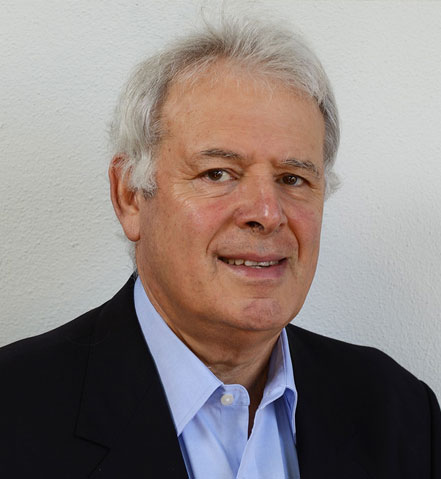Author: Adam Graycar, Professor of Public Policy at the University of Adelaide

UN Sustainability Development Goal 16 aims to "Promote peaceful and inclusive societies for sustainable development, provide access to justice for all and build effective, accountable and inclusive institutions at all levels" This is regarded as the anti-corruption goal, and as such is very important in the achievement of all the others.
When corruption is present, our institutions do not work, clear and thoughtful decision making is undermined, and the application of science and technology does not benefit those who might benefit.
SDG 16 is not the only one that is about corruption. Corruption can undermine just about all of the others. For example SDG 14 promotes life below water, but where there is corruption in fisheries, as there is, and dumping of toxic wastes in the oceans and rivers SDG 14 will not be attained, and that will be due to the corruption that fosters these practices. Similarly SDG 6 on clean water and sanitation, and 15 which aims to promote sustainable use of terrestrial ecosystems, sustainably manage forests, combat desertification, and halt and reverse land degradation, can easily be demoralised by corruption.
A catalogue of harms caused by corruption is easy to compile. It hampers economic performance and growth; discourages investment; distorts natural resource development; damages the environment; reduces tax revenue; distorts services; weakens judicial integrity and the rule of law; diminishes quality of life and human development; and overall promotes inefficient public administration and societal inequality.
The United Nations Convention Against Corruption does not define corruption, but rather explains behaviours that are deemed corrupt. Without getting bogged down in definitions there is corrupt behaviour when officials abuse their public position or entrusted office for private gain; where there is a breach of trust and overall where there is unauthorised trading of entrusted authority. In short, when officials
- Do wrong things
- Fail to do something one should do
- Do something permissible, but purposely do it in an improper manner
In simplistic terms corruption may be driven by need, or maybe by greed. Sometimes it is claimed that officials, usually in poor countries, receive such low salaries that they need to extort to survive. At the other end of the spectrum, greed is a powerful driver of human behaviour that shapes a lot of corrupt activity. Any analysis of corruption should seek to make judgements of the drivers, though this is not always possible without in-depth investigation of motive.
The context is also important. Sometimes there is corruption with theft – where the resources of the state are misappropriated, and sometimes corruption without theft, where the state loses governance capacity. For example a job has to be filled, the budget is allocated, but the person chosen to fill may be the unqualified cousin of an official. Sometimes corruption is not at all about cash or personal gain, but rather about social positioning, building social capital or distributing patronage.
It has been argued that corruption in rich countries is different to corruption in poor countries. In poorer countries the transactions often include bribery, misappropriation and extortion. In richer countries there is cronyism, and in many cases purchase of access (Johnston 2005, Andersson 2008, Graycar and Monaghan 2015).
It is important also to get a sense of the scale of any corrupt activity. Much corrupt activity involves relatively small amounts of money changing hands to obtain some basic service or a permit, or to prevent something like a small fine or a parking or speeding ticket. It also covers some contracts and purchases in municipal activities, aid programmes, bribes for medical or educational services, purchase of textbooks in educational programmes. Although the consequences can be severe, this type of corruption is often termed petty corruption.
This contrasts with grand corruption where the state becomes the plaything of its leaders. This form of corruption involves those at the highest level of government, who loot the Treasury and improperly and dishonestly manipulate and control the institutions of power.
Another variant is what is known as state capture, where the institutions of state have been taken over by vested interests, and the legislature passes laws in favour of oligarchs or key state figures. All the processes are followed, but any opposition is quashed and the outcome is duly legislated and upheld by dubiously appointed judges.
All of the points above come into play when the SDGs are being promoted, and it can be seen how they can undermine the goals.
There are a number of mechanisms that work to counter corruption in our societies. These vary with the context and the societal acceptance of corruption. For example in many poorer countries tax administrators are regarded in surveys as among the most corrupt government officials. In richer democracies tax administrators are regarded as among the least corrupt officials. We could ponder long and hard on why this is so, and bring in other government occupations for comparison. Similarly some sectors are regarded as more corrupt than others, for examples customs administration, highway construction, forestry, health service delivery etc.
Overall corruption is likely to occur when something of value is traded, and demand for that exceeds supply; where there is a motivated offender, a concealed transaction and a violation of law or process. This then leads to significant damage to the public interest.
There are major mechanisms to counter corruption, such as the United Nations Convention Against Corruption, (UNCAC); the OECD Convention on Combating Bribery of Foreign Public Officials in International Business Transactions; the Council of Europe's Criminal Law Convention on Corruption. Some countries have stringent anti-corruption legislation such as the Bribery Act, 2010 in the UK and the Foreign Corrupt Practices Act of 1977 in the US.
International organisations such as the World Bank, the OECD, the Asian Development Bank (ADB), the International Monetary Fund, and various United Nations agencies all have anti-corruption roles. Then there are numerous global NGOs such as Transparency International, U4 Anti-Corruption Resource Centre, Global Witness, and others that are national or local. And there is still corruption in the world!
In many countries there are also anti-corruption agencies. These vary from the very effective to those that are mere paper tigers, and still there is corruption!
Ways forward in corruption prevention involve a mixture of enforcement and the building of integrity in our public administration and in our institutions. The first steps are careful diagnosis of the opportunities for corruption, the types that exist, the sectors in which they exist, and the preparation of tools to deal with corrupt events. Two paths can be followed, one is criminalisation, and the other is prevention and integrity building. There is a point where they intersect. Some analysts say this is only a partial response, and the main response must be major political reform and increased democratisation.
About the author
Adam Graycar is Professor of Public Policy at the University of Adelaide. He has published extensively on corruption analysis and prevention. Two of his widely used books are Understanding and Preventing Corruption (Springer 2013) and Handbook on Corruption, Ethics and Integrity in Public Administration (Edward Elgar 2020)
Adam has also published extensively with Emerald including the following articles:
- Preventing malfeasance in low corruption environments: twenty public administration responses
- Mapping corruption in procurement
- Stealing from the boss: who is looking?
- Corruption and control: a corruption reduction approach
References
- Andersson, S. (2008). "Studying the Risk of Corruption in the Least Corrupt Countries." Public Integrity, 10(3): 193-214.
- Graycar, A. and O. Monaghan (2015). "Rich country corruption." International Journal of Public Administration, 38: 586–595.
- Johnston, M. (2005). "Syndromes of corruption: wealth, power, and democracy." New York, Cambridge University Press.

Responsible management
We aim to champion researchers, practitioners, policymakers and organisations who share our goals of contributing to a more ethical, responsible and sustainable way of working.
